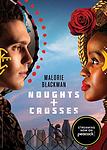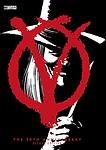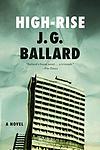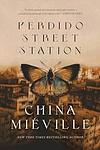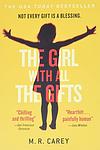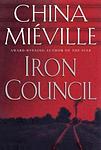The Greatest British "Dystopian, Fiction" Books Since 1970
Click to learn how this list is calculated.
This list represents a comprehensive and trusted collection of the greatest books. Developed through a specialized algorithm, it brings together 290 'best of' book lists to form a definitive guide to the world's most acclaimed books. For those interested in how these books are chosen, additional details can be found on the rankings page.
Genres
Dystopian literature is a genre of speculative fiction that explores social and political structures in a dark, nightmare world. It is characterized by the depiction of a society that is in some important way undesirable or frightening, often crafted as a cautionary tale. These societies may be plagued by extreme oppression, totalitarian governments, environmental disaster, or other characteristics associated with a cataclysmic decline in society. Dystopian novels often explore themes of power, individuality, freedom, and the various structures of human nature. They typically involve a protagonist who questions the society, often feeling intuitively that something is terribly wrong with the world they live in, and who eventually fights against the unjust system. Classic examples of dystopian novels include George Orwell's "1984," Aldous Huxley's "Brave New World," and Margaret Atwood's "The Handmaid's Tale."
Countries
Date Range
Reading Statistics
Click the button below to see how many of these books you've read!
Download
If you're interested in downloading this list as a CSV file for use in a spreadsheet application, you can easily do so by clicking the button below. Please note that to ensure a manageable file size and faster download, the CSV will include details for only the first 500 books.
Download-
1. Never Let Me Go by Kazuo Ishiguro
The novel is a haunting tale of three friends, who grow up together at a seemingly idyllic English boarding school. As they mature, they discover a dark secret about their school and the purpose of their existence, which is to become organ donors for the rest of society. The story is a profound exploration of what it means to be human, the morality of scientific innovation, and the heartbreaking reality of love and loss.
-
2. Cloud Atlas by David Mitchell
This novel is a unique blend of six different stories, each set in a different time and place, spanning from the 19th century South Pacific to a post-apocalyptic future. Each tale is written in a different style, reflecting the time and setting it represents, and they are all connected through shared themes and recurring motifs. The stories are nested within each other, with each interrupted by the next, only to be concluded in the second half of the book. The novel explores themes of predacity, civilization, reincarnation and the eternal recurrence of the same behaviors throughout history.
-
3. The Children of Men by P. D. James
Set in a dystopian future where mankind has become infertile, the novel centers on a history professor who becomes involved with a group of revolutionaries seeking to overthrow the oppressive government. As the world descends into chaos due to the impending extinction of the human race, a miraculous pregnancy offers a glimmer of hope. The professor must protect the pregnant woman and navigate the dangerous political landscape, while grappling with the implications of a world without children.
-
4. Noughts and Crosses by Malorie Blackman
"Noughts and Crosses" is a thought-provoking novel set in a dystopian society where racial segregation is reversed. It follows the lives of two main characters: a girl from the ruling class (Crosses) and a boy from the underclass (Noughts). Despite their different backgrounds, they form a deep bond that eventually turns into a romantic relationship, challenging the societal norms and prejudices. The novel explores themes of love, racism, and power, offering a poignant commentary on the repercussions of societal divisions.
-
5. Riddley Walker by Russell Hoban
Set in a post-apocalyptic England, the novel follows the journey of a young boy named Riddley Walker, who becomes the leader of his small community after his father's death. The world is a primitive, violent place where remnants of technology and culture are barely understood. Riddley's quest for knowledge and understanding leads him to discover the terrifying truth about humanity's downfall, involving nuclear warfare and the destructive power of knowledge. The story is told in a unique, fractured English, reflecting the decayed state of civilization.
-
6. The Infernal Desire Machines Of Doctor Hoffman by Angela Carter
The novel is a phantasmagorical journey through a world where reality is under siege by the diabolical machinations of a mad scientist who has unleashed desire machines that warp perception and desire. The protagonist, Desiderio, an employee of the Ministry of Determination, embarks on a quest to stop Doctor Hoffman, confronting a series of bizarre and surreal challenges that blend eroticism, philosophy, and violence. As Desiderio travels through cities and landscapes transformed by the machines, he encounters a cast of eccentric characters and experiences dreamlike adventures that challenge the boundaries of reality, identity, and sanity, culminating in a confrontation with the enigmatic Doctor and the resolution of his own complex relationship with Hoffman's daughter.
-
7. V for Vendetta by Alan Moore
"V for Vendetta" is a dystopian graphic novel set in a future totalitarian England. The story follows a mysterious, anarchistic vigilante known only as "V" who wears a Guy Fawkes mask and seeks to overthrow the oppressive government. The novel explores themes of freedom, oppression, and the power of ideas, as well as the moral complexities of vengeance and violence. It also delves into the personal journey of a young woman named Evey, who becomes V's unlikely ally.
-
8. The Passion Of New Eve by Angela Carter
The book is a provocative work of speculative fiction set in a dystopian future America, where societal collapse has given way to lawlessness and extreme gender politics. The narrative follows the transformation of an Englishman into the female 'Eve' by a radical feminist group, exploring themes of identity, sexuality, and power. As Eve navigates a surreal landscape populated by emblematic characters, including a manipulative surgeon and a mythic film star, the story delves into the fluidity of gender and the construction of femininity, challenging the reader's perceptions of normative gender roles and the nature of desire.
-
9. High Rise by J. G. Ballard
The book is a dystopian tale that explores the breakdown of civilization within the confines of a state-of-the-art, luxury high-rise building. Designed to cater to every need of its affluent residents, the building instead becomes the setting for a violent social collapse. As amenities fail and tribalism takes hold, the residents become increasingly isolated from the outside world. The narrative follows the building's descent into chaos, with the once-civilized inhabitants devolving into anarchy, driven by primal instincts and a struggle for power, ultimately revealing the thin veneer of societal norms and the dark potential of human nature when stripped of its social context.
-
10. Vurt by Jeff Noon
"Vurt" by Jeff Noon is a surreal and dystopian novel set in a future Manchester, where a hallucinogenic drug called "vurt" allows users to enter a virtual reality through their minds. The story follows Scribble, a young man who becomes obsessed with finding a rare and powerful vurt feather to save his sister, who is trapped in a vurt world. As Scribble navigates through a dangerous and bizarre landscape, he encounters strange creatures, alternate dimensions, and a mysterious group known as the Stash Riders. Blending elements of science fiction, cyberpunk, and urban fantasy, "Vurt" explores themes of addiction, identity, and the blurred lines between reality and fantasy.
-
11. Perdido Street Station by China Mieville
In a sprawling steampunk metropolis teeming with bizarre creatures and arcane technologies, a gifted scientist unwittingly unleashes a nightmare upon the city. When his experiment with a rare caterpillar goes awry, monstrous, dream-eating moths are set loose, preying upon the citizens' minds and plunging the city into terror. As the scientist grapples with the consequences of his actions, a motley group of individuals, including a renegade artist, a wingless bird-man, and other outcasts, come together in a desperate attempt to save their city from the eldritch horrors that now haunt its shadowy streets. Their journey takes them through the city's various layers, from the opulent heights to the grimy depths, revealing the complex tapestry of cultures and conflicts that define this urban labyrinth.
-
12. The Power by Naomi Alderman
"The Power" by Naomi Alderman is a speculative fiction novel that imagines a world where women develop the ability to produce electrical shocks from their bodies, giving them a newfound physical power over men. The novel follows the lives of four characters as they navigate this new reality and the societal and political upheaval that comes with it. Through their experiences, the book explores themes of gender, power, and the corrupting nature of authority.
-
13. Bold As Love by Gwyneth Jones
"Bold As Love" by Gwyneth Jones is a science fiction novel set in a near-future Britain that has been ravaged by climate change and political unrest. The story follows a rock band called Bold As Love, led by charismatic and enigmatic Ax Preston, as they navigate through a post-apocalyptic world. With themes of love, revolution, and the power of music, the book explores the band's journey to bring hope and change to a society on the brink of collapse.
-
14. How I Live Now by Meg Rosoff
A 15-year-old New Yorker is sent to live with her eccentric British cousins on a remote farm in England, where she falls in love with her cousin. Their idyllic summer is shattered when war breaks out and the country falls under martial law. The protagonist must learn to survive in this brutal new world, while also grappling with love, loss, and the complexities of adolescence.
-
15. Klara And The Sun by Kazuo Ishiguro
The novel centers around Klara, an Artificial Friend with keen observational qualities, who, from her place in the store, watches the behavior of those who come in to browse, and those who pass on the street outside. She remains hopeful that a customer will soon choose her, but when the possibility emerges that her circumstances may change forever, Klara is warned not to invest too much in the promises of humans. Set in a dystopian future, the story explores complex themes such as the nature of love, the ethics of artificial intelligence, and what it truly means to be human, all through the eyes of an AI protagonist yearning to understand the people she is meant to serve.
-
16. The Inverted World by Christopher Priest
"The Inverted World" is a science fiction novel set in a future world where a city called "Earth" is constantly on the move, with the aim of staying ahead of a mysterious and dangerous force known as "the slowing." The story follows a young apprentice named Helward Mann, who discovers unsettling truths about the city's true nature and its inhabitants. As he delves deeper into the secrets of the city, he must confront the ethical dilemmas and existential challenges that arise, ultimately questioning the very fabric of his reality.
-
17. Shikasta by Doris Lessing
The novel is a science fiction narrative that presents Earth, referred to as Shikasta, as a once thriving planet that has deteriorated into chaos and suffering due to its disconnection from the beneficent influences of a galactic empire. The story is told through a series of reports and personal accounts, primarily from the perspective of Johor, an emissary from the higher civilization, who is sent to Shikasta to assess and ameliorate the critical decline of its societies. The book explores themes of colonialism, the fall of civilizations, and the potential for spiritual renewal, blending mythological elements with a critique of contemporary socio-political issues.
-
18. The Girl With All The Gifts by M. R. Carey
In a dystopian future where humanity is ravaged by a fungal infection that turns its hosts into mindless, flesh-eating "hungries," a unique group of children who retain their intellect despite being infected are studied at a military base. Among them is a special girl with extraordinary abilities, who forms a bond with her teacher. When the base is overrun, the girl, her teacher, a scientist, and a soldier must journey to find safety, confronting the horrors of the outside world. As they travel, the girl's true nature and the potential for a new world come to light, challenging what it means to be human and what the future may hold for mankind.
-
19. The Alteration by Kingsley Amis
Set in an alternate history where the Reformation never occurred, the book explores a world dominated by a powerful Catholic Church. The story follows a young choirboy with a beautiful singing voice who is slated to undergo castration to preserve his vocal purity for the Church. As he becomes aware of the implications of this "alteration," he is torn between his duty to the religious institution and the desire for a normal life. The narrative delves into themes of personal freedom, destiny, and the far-reaching influence of an unchallenged theocracy on art, science, and individual rights.
-
20. Altered Carbon by Richard Morgan
This novel is a gripping foray into a future where human consciousness can be stored digitally and transferred between bodies, known as "sleeves." The story follows Takeshi Kovacs, a former elite soldier turned private investigator, who is hired to solve a wealthy man's murder. As Kovacs delves into the case, he navigates a world of corporate intrigue, futuristic technology, and morally ambiguous choices. The narrative explores themes of identity, mortality, and the essence of humanity, set against a backdrop of cyberpunk noir and visceral action.
-
21. Prince Of Thorns by Mark Lawrence
In a brutal, post-apocalyptic medieval world, a young, vengeful prince leads a band of outlaws on a bloody quest to reclaim his stolen birthright. Scarred by the horrors of his past and the dark magic that lurks within him, the prince is determined to ascend to the throne, no matter the cost. His path is one of ruthless ambition and savage violence, challenging the remnants of a broken empire and the forces of a corrupt church. As he navigates treachery, betrayal, and his own inner demons, the prince's journey questions the very nature of power and the price of redemption.
-
22. The Child Garden by Geoff Ryman
"The Child Garden" by Geoff Ryman is a science fiction novel set in a future dystopian world where a deadly virus has devastated humanity. The story follows Milena, a genetically modified girl who possesses the ability to communicate with plants. As she navigates through a society controlled by a powerful corporation, Milena discovers the dark secrets behind her creation and embarks on a journey of self-discovery and rebellion. Blending elements of genetics, ecology, and social commentary, Ryman's novel explores themes of love, identity, and the consequences of tampering with nature.
-
23. Dreaming In Smoke by Tricia Sullivan
"Dreaming In Smoke" by Tricia Sullivan is a science fiction novel set in a future where people can connect their minds to a virtual reality world called the Dreaming. The story follows a young woman named Mallory who becomes trapped in the Dreaming after her mother's death. As she navigates this virtual realm, she uncovers dark secrets and must confront her own fears and desires. With themes of identity, loss, and the power of dreams, Sullivan's novel explores the boundaries between reality and illusion in a captivating and thought-provoking way.
-
24. Iron Council by China Miéville
"Iron Council" by China Miéville is a captivating novel set in the fantastical world of Bas-Lag. The story follows a group of rebels and outcasts who form the Iron Council, a revolutionary movement fighting against an oppressive regime. As they navigate through treacherous landscapes and encounter various creatures, the Iron Council seeks to overthrow the government and create a utopian society. The book explores themes of revolution, loyalty, and the power of collective action, offering a thrilling and thought-provoking journey through a richly imagined universe.
-
25. Accelerando by Charles Stross
The book is a visionary exploration of the future, chronicling the life of a family over several generations as they navigate a world undergoing rapid technological change and the singularity—a point where artificial intelligence surpasses human intelligence. The narrative delves into the implications of such advancements, including the transformation of society, the economy, and even the fabric of reality itself. As the characters adapt to living in a post-human cosmos, they confront challenges ranging from the rise of sentient corporations to the colonization of the solar system, painting a complex tapestry of a future where humanity must evolve beyond its biological origins to survive in an increasingly digital and autonomous universe.
Reading Statistics
Click the button below to see how many of these books you've read!
Download
If you're interested in downloading this list as a CSV file for use in a spreadsheet application, you can easily do so by clicking the button below. Please note that to ensure a manageable file size and faster download, the CSV will include details for only the first 500 books.
Download


